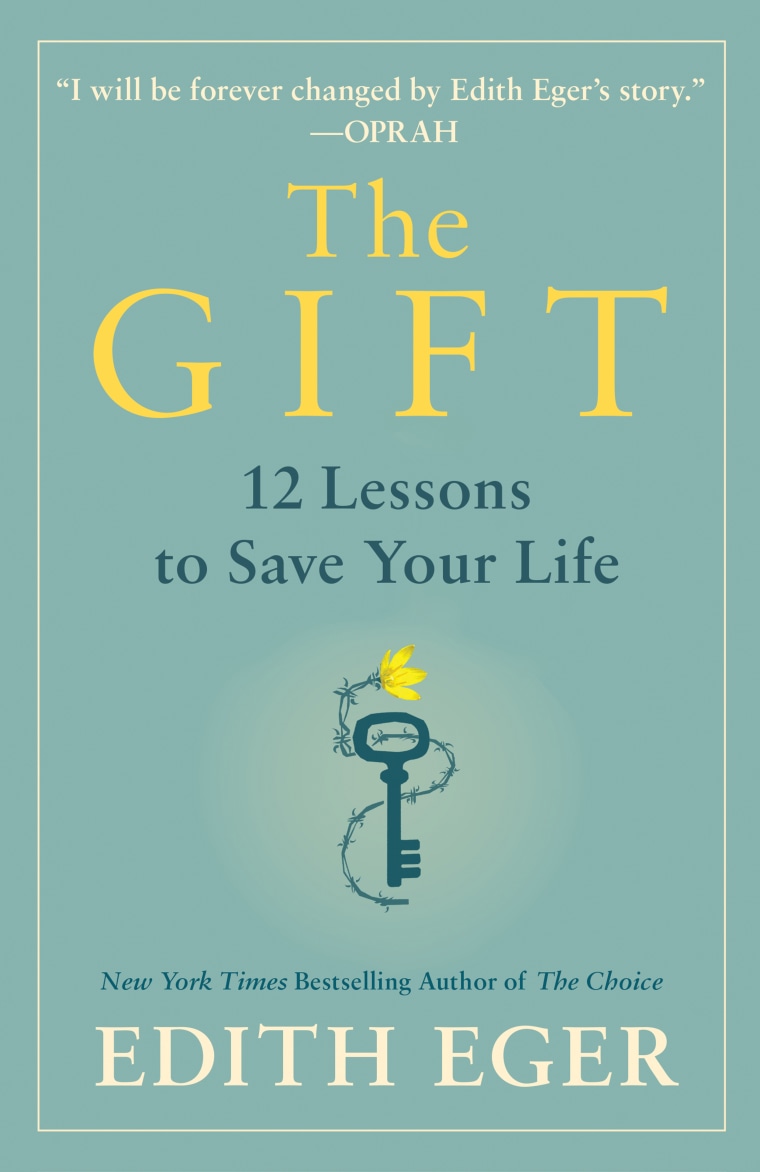When Dr. Edith "Edie" Eger was 16, she watched as her parents were led to a gas chamber at Auschwitz, the largest concentration camp run by the Nazis during the Second World War.
“That was my innocence,” Eger, a native of Hungary, told TODAY Parents.
Eger spent eight months at the death camp in southern Poland where she was starved, beaten and humiliated by soldiers. She witnessed unspeakable horrors, including the sight of a young boy being used for target practice and a woman in labor with her legs bound shut.
“They told me I was subhuman and the only way I would get out was as a corpse,” Eger revealed.
Eger will celebrate her 95th birthday this year. In 2020, a national survey revealed a shocking lack of knowledge about the Holocaust in people younger than 40: 63% of those surveyed did not know that 6 million Jews were murdered in the Holocaust, and one in 10 said they didn't recall ever having heard the word "Holocaust" before. As one of a dwindling number of Holocaust survivors, Eger feels compelled to share her stories of horror, and hope.
Eger credits her survival to her mother’s parting words of advice on a filthy cattle truck bound for Auschwitz. “No one can take away from you what you’ve put in your mind.”
“I created a world that gave me some comfort in my soul. I was able to decide that the Nazis were the prisoners because of their guilty consciences,” Eger said. “I actually prayed for them, not me. I was able to change hatred into pity.”

Eger was discovered under a pile of dead bodies when Auschwitz was liberated in 1945. She went on to become a world-renowned clinical psychologist specializing in post-traumatic stress disorder or PTSD. At 90, she published her memoir, “The Choice,” which tells the story of her survival and healing.
Eger’s new book, “The Gift: 12 Lessons to Save Your Life,” offers wisdom on resilience, grief and finding hope in the darkest times.
The San Diego-based mother of three shared 18 life lessons:
1. We can’t control what’s happening. But we can choose how we respond to it.
2. Mothers worry too much, not realizing that at least 85% of worry never happens. Worry is useless.
3. Don’t dwell on what you could have done or should have done. Live in the present. It’s what now, not why me?
4. Avoid using “always” and “never.” Those are absolutistic words. Instead you say, “up until now” or “in the past.”
5. Children will not do what you say, they will do what they see. Be a good role model.
6. I have PTSD. Yes, sometimes I do yell, but I’ve always been very selective about who I do it in front of.
7. There is no man’s job or woman’s job. Be equal partners. You should both wash the car and do the cooking.
8. Families are very sick if they have secrets.
9. You’re not a mother. That’s just a role that you play. You are a human being.
10. Don’t ask your partner stupid questions like, “How are you?” because they are going to say “fine,” even if they’re not fine. Instead, make a statement. “Good to see you,” “I missed you.” And then you have good sex.
11. When someone dies, celebrate every moment you had with them rather than thinking “I lost that person.” No, you were gifted with that person. Maybe 30 years, maybe 50 years, maybe two days, but it was a gift.
12. I was not a victim. I was victimized.
13. I like people to be realistic, not idealistic.
14. Be a compassionate listener and keep their feelings company. If I complain to you that I hurt my thumb, and you say, “Oh, honey, I just saw a person that doesn’t have an arm,” then I’m going to feel guilty for feeling the way I do.
15. Don’t talk to your husband like he’s your child. Then you won’t have sex.
16. When I was 40, I was told to go for a doctorate and I said, “It’s impossible because by the time I get a doctorate, I’ll be 50.” And the person said, “You’ll be 50 anyway.” Isn’t that brilliant?
17. Don’t go to bed angry. Don’t suppress feelings because then you’ll get headaches and tummy aches.
18. If it's not kind, don't say it.
Related video:
This story was first published in September 2020 and has been updated.